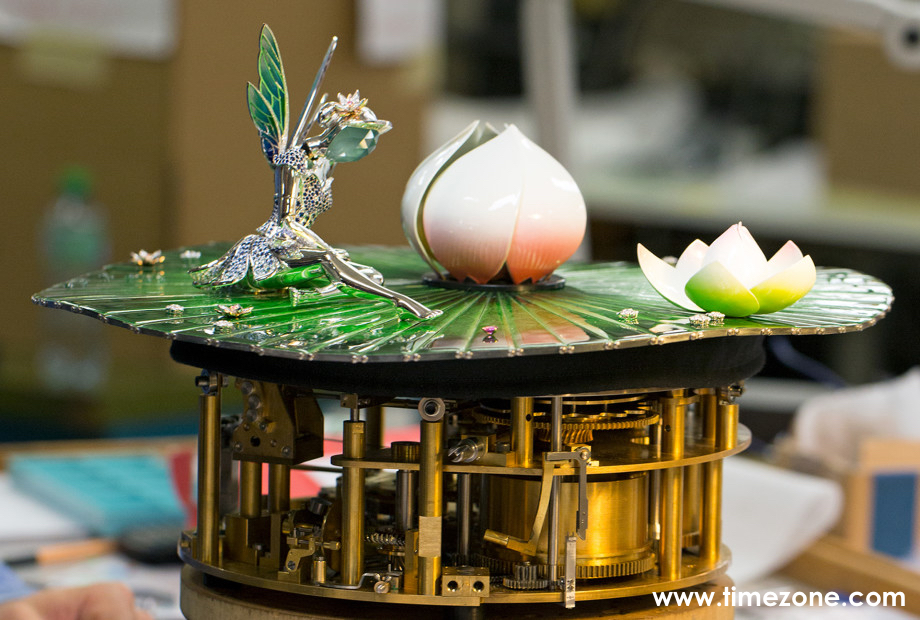Ridiculous title.
Obviously fiat is far from worthless. No doubt doubling the money supply has consequence, but that's not what is interesting to me here; what is interesting to me is the difference between those preaching crypto salvation and the gold bugs.
Gold is a terrible currency. Crypto is far less so, and in some aspects, it beats fiat. But most importantly, crypto is evolving, and will continue to. I can see crypto becoming the most useful form store of value.
For that reason, I do not view my crypto only in terms of how much fiat I can exchange it for. I'd never exchange it all for fiat.
veen passed me a book on Ethereum that I deleted by accident and then read and deleted on purpose in which there's a whitepaper that I read and promptly forgot which it was which is too bad because it puts forth a fundamental concept: valuables are any objects that demonstrably represent expertise over time. By this argument, ornate jewelry represents "value" in the following ways: - the time expended in mining and refining precious metals - the time expended in mining and faceting any gemstones - the time expended in crafting the piece - the time expended in any additional ornamentation So while the effort put into this: Is orders of magnitude more than the effort put into this: The "value" of the Automate Fee Ondine is orders of magnitude higher than the iPhone 8 because the former represents years of individual labor by a handful of skilled artisans as opposed to moments of collective labor by a pool of thousands of pieceworkers. It kinda throws the proposition of "gold" into question: I guess something like 80% of all the gold ever mined has been mined in the past 100 years. The time value proposition of gold is very different now than it was then, yet the price is stupid high. And it justifies the "crypto" behind cryptocurrency: it took the computer this long to crack the nut and win the coin. The point is that cryptocurrency mining rates are governed by time not number. The inherent value in cryptocurrency is the hash rate, not the exchange, because the exchange (as demonstrated by this piece) is meaningless when half of it is fiat. So the title isn't wrong - fiat money is "worthless" if by "worthless" we mean "does not have any inherent value." Bitcoin is "worthless" if you don't value the clock time of the ASICs doing the hashing, just like my friend the Fee Ondine is "worthless" if you don't value the clock time of goldsmiths and gemcutters. I've taken to explaining Ethereum as an investment in future clock time on a massively distributed mainframe. That mainframe may not be doing a lot at the moment but one need not be a student of computer science to hypothesize that it may prove useful.

Tangential, but interesting: SEC just appointed Dalia Blass to the position that decides whether or not ETFs are added. She comes from the firm that was working on the Winklevoss BTC ETF. Yesterday the ETH ETF application was updated for the first time in a year. My guess is that the Chinese crackdown on ICOs and this are not unrelated.
Is there any way to estimate the value of future distributed click time? What terms would that estimation use if crypto is valued differently from fiat or gold? I don't mean that to be a leading question; I don't fully understand crypto or how it's valued.Ethereum as an investment in future clock time on a massively distributed mainframe
I think there are lots of ways, but I don't know of any reliable ways that I put any faith in. My personal belief is that the financial system of the world doesn't have a model or an analog for what cryptocurrency means to exchange, and I personally believe that 2nd-order cryptocurrencies like Ethereum mean a lot more than exchange. There are serious unknowns between now and some future cryptocurrency-based economy. What effects will the encouragement or discouragement of central banks and businesses have on the adoption of a distributed currency? What effects will the problems of amateur-hour exchanges and ICOs have on public adoption? My guess - and it is an educated guess but it's still a guess - is that the utility of cryptocurrency will outrun any regulatory or social setbacks. But then, the utility of torrenting smashed the shit out of music sales and was dominant until the utility of streaming via Spotify or whatever denigrated torrenting to corner-case nerds. The more I study economics and finance, the more examples I see of speculation, the fewer examples I see of inherent value. I believe that Ethereum has inherent value, albeit I can't begin to put a number to it. I don't believe that Bitcoin has inherent value but I don't really believe gold has as much inherent value as it currently costs. It's puka shells all the way down, really.Is there any way to estimate the value of future distributed click time?
Do you mean this Nick Szabo essay? I haven't read it yet, but I do wonder what Proof-of-Stake then implies.
I meant that very essay. You are a prince among men, sir. I should have said "skimmed" instead of "read" because I'm going to have to read it for realsies now. To elaborate on mk's point, "proof of stake", from an individual standpoint, means "I am willing to surrender value for a set amount of time in order to vouchsafe the sanctity of the network that delineates that value for which I shall make interest." Instead of "give me a coin, I have done a tremendous amount of work" it's "here's a coin that has already demonstrated a tremendous amount of work, I offer it as insurance for the functioning of the system."